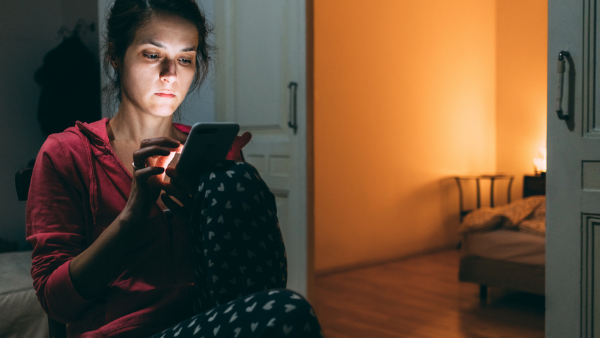Author
From 16 August 2021, people who are double-jabbed or aged under 18 are no longer legally required to self-isolate if they are identified as a close contact of a positive COVID-19 case by NHS Test and Trace. With over 85% of people in England now having received both doses of the vaccine, and with the Government expecting all adults to have had the opportunity to be double vaccinated by 1 October 2021, the expectation is that a majority of adults will no longer need to self-isolate if they are identified as contacts. Instead, they are advised to take a PCR test as soon as possible to check if they have the virus.
Prior to 16 August 2021, only double-jabbed critical workers were permitted to leave self-isolation to ensure vital services continued. The changes introduced on 16 August mean that, with some additional precautions for health and care settings, fully vaccinated contacts can be routinely able to attend work if they do not have symptoms.
Whilst this change has helped to limit the impact of Covid-19 on businesses and the economy, it has introduced difficult questions for employers who previously offered enhanced sick pay benefits to all staff when they were self-isolating.
The issues with company sick pay
The default position is that those who are self-isolating and not able to carry out any alternative duties from their home are entitled to Statutory Sick Pay (SSP). Wherever a member of staff is able to carry out work from home during periods of isolation, they should continue to receive full pay.
Prior to 16 August 2021, if a company took the decision to pay full pay during periods of self-isolation instead of SSP, all employees (aside from certain critical workers) would have been treated the same, in that, if they were identified as a close contact, they would have all been required to self-isolate, regardless of their vaccination status. However, following the recent changes, a fully vaccinated employee who is “pinged” can still attend work, whereas an unvaccinated employee will need to stay at home. This potentially creates a difference in treatment between those who are double-vaccinated and those who are not. In companies where full pay is offered during self-isolation, both the vaccinated and un-vaccinated will receive the same pay, whereas the former may be required to attend work and the latter will be required to stay at home to self-isolate.
As a result, many companies are reluctant to pay company sick pay to those self-isolating at home who have refused the vaccine, particularly where this involves the employee receiving full pay. Morrisons has recently announced that, from 1 October 2021 (the date by which the Government states all adults will have had the opportunity to be double vaccinated), it will no longer pay full sick pay for “pinged” staff who have chosen not to be vaccinated. However, the cut in sick pay will not apply to those who have not, for whatever reason, had the chance to have both vaccine doses, or to those who are experiencing COVID-19 symptoms.
The law
The Government guidance encourages employers to pay contractual company sick pay (as opposed to SSP), where appropriate. Whilst this is only guidance, there are various legal considerations for employers to consider before following in Morrisons’ footsteps and applying a “two-tier” sick pay policy.
Discrimination
Where an employer implements a policy that has the effect of paying, during periods of sickness absence, those who are not double-jabbed less than those who have been vaccinated, there are risks that the employees could raise allegations of discrimination. This will largely depend on each individual’s reasons for not receiving the vaccine and whether this is because of protected characteristic, such as a disability, pregnancy or religious belief.
As well as the more obvious risk areas, as set out above, there is also a risk that ‘anti-vaxxers’ may be able to argue that their beliefs regarding the vaccine constitute an ‘ethical belief’, which is capable of protection under the Equality Act 2010 (although note that, unhelpfully, the Tribunal hasn’t been required to consider this question to date). In these circumstances, an individual may try to argue that the fact they are only being paid SSP and not full pay amounts to less favourable treatment compared to those who do not share their protected characteristic. An employer will need to be comfortable that they can justify the differential treatment, for example, on the basis that those who are able to carry out work should receive higher pay than those who aren’t. Written records should be kept of such decision making, noting the objective justifications considered.
Breach of Contract
Where an employer has previously paid all self-isolating employees company sick pay, there are also potential risks that employees may argue that the employer is breaching their contract by ceasing to do so. Whether this practice previously amounted to a contractual entitlement by virtue of custom and practice will depend on various factors. The company should consider the terms of the company’s sickness policy, their communication with employees regarding their pay during periods of self-isolation and how many employees have actually self-isolated and received company sick pay or full pay to date.
If there has not been any express guarantee of full pay (whether in a policy or otherwise) and, in practice, relatively few employees have actually received it, it is unlikely that employees will be deemed to have a contractual entitlement, and the risks of the company confirming to all staff that anyone self-isolating will be paid SSP will be low from a breach of contract perspective. Alternatively, if employees have been guaranteed full pay, either verbally or in writing, during periods of self-isolation, and the uptake of this has been significant, it is going to be more difficult to deviate from this without obtaining all employees’ express agreement to the same.
What can employers take from this?
The union, Unite, suggests that Morrisons’ decision, which is intended to encourage vaccine uptake, whilst also mitigating the “biblical costs” of the pandemic, will raise human rights and ethical issues, and give rise to discrimination claims.
There are certainly a range of considerations for employers to contemplate before taking a decision to implement this type of policy, and it will be interesting to see how the Tribunal responds to any claims which seek to challenge the same. The level of risk will depend on the specific employees who are impacted by the policy and it will be best practice to complete a risk assessment before any practical steps are taken.
This article is for information purposes only and is not a substitute for legal advice and should not be relied upon as such.

